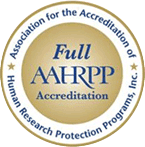Index
Request a Presentation Now for Your Research-Oriented Class or Group
Exploratory Workshop – Informed Consent
Research Ethics Reading List
Biorights: Subjects’ Rights in Future Research
IRB Advisor: September 2018
Request a Presentation Now for Your Research-Oriented Class or Group
As the Fall 2018 semester continues, we want to promote a resource that may be especially useful to instructors of research methods courses, other research-related courses, journal clubs and orientation sessions or seminars for new faculty, graduate and professional students. The IRB Education and Outreach program is available upon request to give classroom and group presentations about the ethical conduct of research, the UI IRB review process and other human subjects research-related topics. We can tailor the length and content of the presentation to suit your needs, and we will present outside normal business hours, including evening and online classes.
IRB Overview Presentation
We offer a general IRB overview presentation that provides a broad overview of topics that are relevant for students and others who plan to conduct research themselves, whether as a course requirement or as an honors, Master’s or doctoral dissertation. This presentation can cover some or all of the following:
- The definition of human subjects research
- How to ask if you need IRB approval
- Ethical conduct of research (the Belmont Report)
- The UI IRB review process
- Informed consent
- Research off campus or outside the United States
- Course-related student projects
- IRB Resources that are available for UI/VA researchers
This presentation provides a good orientation to the UI IRB and the IRB approval requirements for faculty, staff and student researchers.
Ethical Conduct of Research
We also offer a full presentation about the ethical conduct of research. It includes an in-depth discussion of the ethical principles of human subjects research that are outlined in the Belmont Report and examples of unethical research conducted both historically and recently. This presentation is designed to help students apply basic ethical standards to real-world examples of human subjects research. It would be an excellent supplemental lecture for any research methods course.
These presentations typically fill a 50-minute class period, but we can tailor the length and topic to suit the needs of the class or group. Contact us today at irb-outreach@uiowa.edu to schedule a presentation for your class or group.
Exploratory Workshop – Informed Consent
By Kelly O’Berry


The Office of Human Research Protections (OHRP) provides guidance and oversight in the protection of the rights, safety and welfare of individuals participating in human subjects research that is conducted or supported by the U.S. Department of Health and Human Services (HHS). The office recently announced an initiative to hold workshops that are open to the public, to explore various issues in biomedical and health-related behavioral research. The OHRP Exploratory Workshop are intended to provide a platform for the research community to engage in collegial intellectual exchanges in an effort to explore ethical and regulatory issues regarding to the protection of human subjects.
On Friday, September 7, 2018, OHRP hosted the first, day-long virtual workshop called “Meeting New Challenges of Informed Consent in Clinical Research” with presentations and panel discussions on the following topics:
Session A - Laying the groundwork for meaningful informed consent
Session B - Effectively presenting information to facilitate high-quality decision-making
Session C - Pragmatic Clinical Trials (PCT) – challenges and innovations in getting informed consent
Session D - Delivery room research and the challenges for informed consent.
The slides and recordings are now posted on the OHRP web site. Follow the link on the main page to watch the full event or select an individual session to access the slides and recording of the presentations and panel discussion for that session. As always, UI researchers can contact the Human Subjects Office by phone (319-335-8477) or email (irb@uiowa.edu) or attend IRB Office Hours to explore the human subjects protections issues related to any study procedure, including the consent process.
Research Ethics Reading List
By Kelly O’Berry
If you are interested in reading about human subjects and animal research ethics, we have a few suggestions to share. In a recent blog post, Public Responsibility in Medicine and Research (PRIM&R), the professional organization for the fields of human subjects and animal research, featured the following books:

- Technically Wrong: Sexist Apps, Biased Algorithms, and Other Threats of Toxic Tech, Sara Wachter-Boettcher (UI Main Library TA169.5.W33 2017, Iowa City Public Library 303.4834/Wachter-Boettcher)
- Robot Ethics 2.0: From Autonomous Cars to Artificial Intelligence, Patrick Lin (editor), Keith Abney (Editor), Ryan Jenkins (editor) (Available through Uborrow interlibrary loan)
- She Has Her Mother’s Laugh: The Powers, Perversions, and Potential of Heredity, Carl Zimmer (UI Main Library QH431.Z52 2018, Iowa City Public Library 576.5/Zimmer)
- Animals Make Us Human: Creating the Best Life for Animals, Temple Grandin (Iowa City Public Library 636.0832/Grandin - book, CD and ebook)
- Putting the Horse before Descartes: My Life’s Work on Behalf of Animals (Animals and Ethics), Bernard E. Rollin (ebook at UI Law Library HV4716.R66 A3 2011)
- Spillover: Animal Infections and the Next Human Pandemic, David Quammen (Iowa City Public Library 614.4/Quammen)
Check out the August 23, 2018 Ampersand Blog post for descriptions of each book. PRIM&R invites suggestions of other “new releases, classics in the field, or underexposed gems.” See also the June 20, 2012 Ampersand Blog post for some other research ethics book recommendations.
Happy reading!
Biorights: Subjects’ Rights in Future Research
Patricia Katopol, PhD

How we got here
Biorights is a growing movement supporting the claim that research subjects should retain authority over their donated samples. As the lay and scientific press tout the possibilities (and profits) from future research and with the presence of over 600 nonprofit and industry-related biobanks in the United States, subjects are learning more about how their donations are used and are increasingly unwilling to relinquish complete control over them. For example, in Washington University v Catalona, after Washington asserted rights in the specimens against those of the PI and donors who joined in the lawsuit, the Eighth Circuit Court of Appeals held that once donated, patients no longer had property rights to the specimens. In Moore v. the University of California, the subject plaintiff unsuccessfully sought to claim biorights in his cell line – a line that earned more than three billion dollars, none of which was shared with the plaintiff. In another action, the American Civil Liberties Union filed suit to help patients obtain all of their genetic information, not only information about specific genes or conditions under study. Finally, parents of newborns in Texas successfully sued the state, asserting concerns over privacy and data security. Texas was forced destroy over 5 million samples of newborn blood.
Where we are now
The matters described above indicate the unsettled status of biorights. Looking across the biorights literature, subject concerns can be grouped broadly into four areas:
- Protecting identifiable information – Even when subjects are amenable to unspecified future use of their specimens, they may be concerned about who has control of the specimens and the level of security provided. Identity theft is already a concern for the public. Subjects do not want to worry about data breaches that may result in personal health information being stolen and held for ransom, such as happened to 80,000 patients at Emory Healthcare. Subjects are also concerned that new technologies will make it easier for them to be identified by ever smaller bits of data and how that will affect them – and their families. Deidentifed today is not deidentifed forever.
- Learning about personal health information – Some subjects want to know about any health conditions uncovered by the research, not just the ones that are the study’s focus. This may require the investigator to design the study so that genetic or other counseling is provided to those subjects who want to know their genetic status. Because subjects donate the very biospecimens needed for their studies, investigators should be willing to share the genetic information that they uncover during the course of the study; to do so treats subjects with respect and recognizes their contribution to the research. That said, not all subjects want to learn about the findings. Researchers should openly communicate with subjects to determine the genetic information they want, rather than assuming what information the subject can handle. This discussion should take place during the consent process with the consent documents containing an optional agreement indicating if the subject 1) wants to receive test results and 2) what genetic information will be shared. Researchers may design the study so that they do not share genetic information for which there is no treatment or course of action. This should be indicated in the consent document. Finally, investigators are reminded that genetic test results can only be given to a subject if the test is performed in a CLIA-certified lab. This information is provided to the IRB in HawkIRB VII.C.9-VII.C.12.
- Commercial exploitation and subject payment – Genetic Alliance, a patient advocacy group, maintains that patients should share in the economic growth of biobanks by keeping rights in the specimens they donate or even being paid to donate. Patients may not always be successful in asserting their rights in court, but they can assert ownership by not donating at all if they believe the investigator is not truthful about the possibility of profits being made from their altruistic donation. If many subjects sense they are being used for the profit of others, it could negatively affect researchers’ ability to obtain the biological specimens they need.
- Undermining trust in medical research – With results such as those in Moore, and the growing publicity about Henrietta Lacks’ HeLa cell line (taken by a researcher without her consent or knowledge and then used by corporations to generate millions of dollars), the public might easily think that investigators are not being truthful about what will happen to donated specimens and become reluctant to give up ‘too much’ authority over their samples. Other subjects may feel their culture or ethnicity is disrespected if their biospecimens are used for something other than what was described in the consent document. For example, members of the Havasupai Indian tribe donated specimens for diabetes research. Subsequently, however, the specimens were used for research that the tribe found objectionable, such as finding genetic markers that contradicted their tribal origins mythology, mental illness, and inbreeding – taboo topics in the Havasupai culture. This led to a lawsuit that was settled with a payment to affected tribe members and the return of the specimens and associated data to the tribe. Investigators should discuss with the subject whether s/he would object to some particular use of the biospecimen. Just saying that the specimens will be used for ‘medical research, ‘for example, may be insufficient information for some subjects whose consent may be greatly influenced by religious, ethnic, or ethical concerns.
Working with the IRB
Proposed changes to the Common Rule revise the definition of human subject to include biospecimens, whether or not they are identifiable, and brings the use of non-identified biospecimens within the scope of the Federal Regulations for the Protection of Human Subjects (45 CFR 46). To do so, the proposed changes provide for the use of broad consent, which requests prospective consent to unspecified future research as opposed to study-specific consent. Broad consent can address some biorights concerns by requiring identification of the types of research conducted with the data/biospecimens, recording and tracking who has agreed to or refused consent, and tracking the terms of consent to determine whether proposed future secondary research use falls within the scope of the identified types of research. However, its use requires institutions to develop systems that will track consent, subject wishes regarding their biospecimens, and retain subject contact information for possible consenting for future research.
At this time, the UI IRB has not yet approved the use of broad consent by UI researchers because the institutional mechanisms for oversight, record keeping and tracking patients’ wishes regarding future use of samples have not been established at this institution. The use of broad consent is optional; researchers may still use a typical consent form to describe storage and future use of specimens collected from enrolled subjects. If a study will store tissue/blood/data for future, the consent should clearly state that there are no plans to provide financial compensation to subjects if future research develops tests or products that could be patented or licensed. This language is in the UI Informed Consent Document template and reads, “It is possible that your [type of tissue/blood/data] might be used to develop products or tests that could be patented and licensed. There are no plans to provide financial compensation to you should this occur.” This template language is inserted into the study Informed Consent Document when there is a ‘yes’ response regarding storing data, tissues or specimens for future use in Section XII.4.
Researchers who collect and store materials for future research should be ready to address subjects’ concerns about how their specimens will be used, the possibility of commercial application, data security, and what health information uncovered by the specimen will be shared with the subject.
IRB Advisor, September 2018
SACHRP on Verge of Finalizing Informed Consent Guidance
The Secretary's Advisory Committee on Human Research Protections (SACHRP) is tasked with giving recommendations to the Secretary of Health and Human Services about human subjects protections. In the last few months, they have focused on providing guidance about the upcoming Revised Common Rule, with a particular focus on the new informed consent requirements. They recently announced that later this year they will release guidance related to the Common Rule, with a focus on the new changes to informed consent requirements that researchers must now comply with.
Obtaining ‘informed’ consent is both a regulatory and an ethical requirement, but it often is not done in such a way that the subject truly understands the most important information about a study. Informed consent documents are often long and confusing, with incomprehensible medical terms aplenty and important information buried deep in the document. The upcoming changes to requirements for informed consent were designed to improve and streamline the process. One of the main changes is to provide subjects with a short section of key information at the beginning of the consent document. Unfortunately, the revised Common Rule does not specify how short is “short” and what would be “key” information. SACHRP is working to design a series of questions to specify the key information to include. Some of the questions they are considering include:
- What is the information a prospective subject needs in order to make a well-informed choice about whether to participate?
- What are the main reasons a subject will want to join this study?
- What are the main reasons a subject will not want to join this study?
When SACHRP finalizes its guidance before the Common Rule is implemented next January, it will provide much-needed assistance for IRBs and researchers to comply with the Revised Common Rule and improve consent documents and the consent process.
Other articles in the September issue of IRB Advisor include:
- “Does Use of Biospecimens From Children Require Reconsent When They Are Adults?”
- “Tackling AAHRPP Accreditation Requires Time, Focus, Documentation”
- “Newly Accredited Program Has Made Policies and Procedures Easier to Follow”
- “Consistency Is a Challenge, but Necessary With Multiple Institutional IRBs”
- “FDA Gene Therapy Draft Calls for Long-term Follow of Subjects”
- “Potential Adverse Outcomes of Gene Therapy”
Current and Past Issues
IRB Advisor (a publication of Relias) is a monthly newsletter with articles about issues facing IRBs and individuals involved with human subjects research. The University of Iowa subscribes to this publication as a resource to UI faculty, staff and student researchers as well as for IRB members and Human Subjects Office staff.
Current and past issues of IRB Advisor are posted in the “IRB ICON Course for Researchers” which is accessible to anyone with a UI HawkID and password. You must access this ICON Course from the Education and Training page of the Human Subjects Office web site. Due to our licensing agreement, we are no longer able to post a link to this publication on the Human Subjects Office website.


